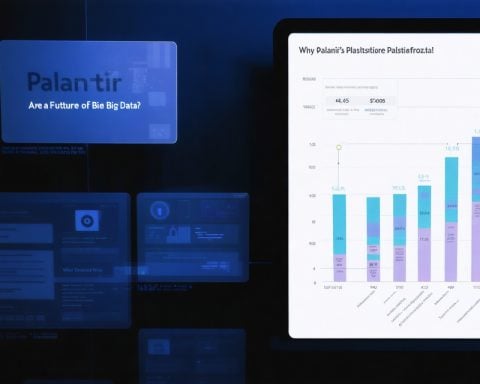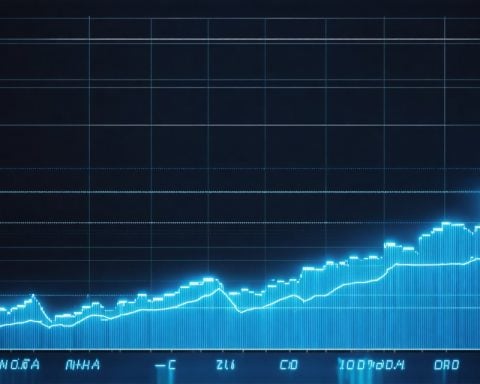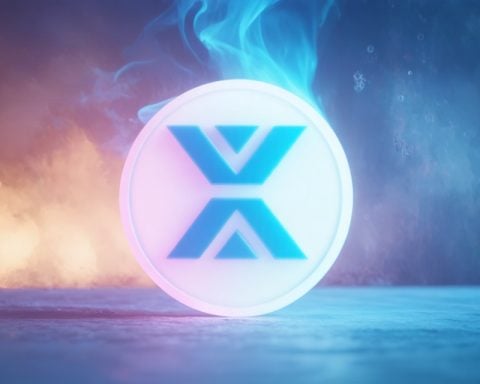- Ripple’s XRP experienced a nearly 10% drop due to renewed tariff threats from President Donald Trump targeting Mexico and Canada.
- Negative funding rates indicate bearish sentiment, with short traders paying long-positioned counterparts, reflecting pessimism in XRP’s near-term outlook.
- Despite turmoil, investors are increasing exchange net outflows, driven by the SEC’s recent leniency in dismissing cases against major crypto firms.
- XRP’s price is teetering near crucial support levels: falling below $2.55 and nearing $1.96, with potential further declines towards $1.35 if breached.
- Technical indicators such as the RSI and Stochastic Oscillator show a struggle to reverse the ongoing downtrend.
- The market remains uncertain, watching for either a potential recovery or further challenges for XRP.
Ripple’s XRP plunged into chaos Monday, tumbling by almost 10% amidst economic tension, as President Donald Trump renewed tariff threats targeting Mexico and Canada. Clouds of uncertainty loomed as trade negotiations remained stagnant, mirroring the upheaval witnessed in early February when Trump first brandished the tariff baton.
Across the crypto landscape, XRP’s funding rates flickered into the negative zone, unfurling a tapestry of bearish sentiment. These rates, pivotal for maintaining parity between perpetual futures and the asset’s spot price, now signal distress. Negative funding rates compel short traders to compensate their long-positioned counterparts, suggesting a prevalent pessimism about XRP’s near-term future.
However, resilience glints through the market chaos. Investors, eyeing opportunity amidst the turmoil, have stirred the waters, pushing exchange net outflows into overdrive across platforms like Binance, Kraken, and Coinbase. This strategic move appears buoyed by the Securities and Exchange Commission’s (SEC) recent leniency, evidenced by case dismissals against industry giants like Coinbase and Robinhood Crypto. Investors speculate a similar resolution might unfold for Ripple, potentially drawing a curtain over their long-standing legal clashes.
Despite the murky backdrop, XRP paused near crucial technical junctures. Falling below $2.55 has set alarm bells ringing as it inches dangerously close to a pivotal support line at $1.96. A breach here could herald a new wave of selling, tumbling possibly towards $1.35. Meanwhile, key indicators like the RSI and Stochastic Oscillator paint a waning picture, struggling to overturn the prevailing downtrend.
XRP stands at a crossroads; while anxiety lingers, so does the potential for a turnaround, unearthing a glimmer of hope amid swirling uncertainty. The market waits, watching and wondering—will XRP’s fortunes reverse, or is there yet another storm to weather?
Will XRP’s Stormy Seas Calm or Lead to New Horizons? Discover What’s Next for This Cryptocurrency!
How-To Steps & Life Hacks
Understanding and Navigating XRP Volatility:
1. Monitor Key Technical Indicators: Keep an eye on financial indicators like the Relative Strength Index (RSI) and Stochastic Oscillator. These can provide insights into whether XRP is overbought or oversold.
2. Diversify Investments: Consider diversifying your portfolio to reduce risks associated with one asset’s volatility.
3. Use Stop-Loss Orders: Protect your investments by setting stop-loss orders to limit potential losses.
Real-World Use Cases
XRP in Cross-Border Transactions:
XRP is primarily used to facilitate cross-border payments efficiently. The cryptocurrency helps in enabling quick settlements and reducing transaction costs, making it a popular choice for banks and financial institutions looking to modernize their operations.
Market Forecasts & Industry Trends
XRP Market Predictions:
According to industry experts, while XRP faces legal challenges, its functionalities for transaction efficiency could see it maintain relevance. The market volatility may continue, but long-term stability could be anticipated if regulatory concerns are resolved favorably.
Reviews & Comparisons
How Does XRP Compare to Other Cryptos?
Compared to Bitcoin and Ethereum, XRP offers faster transaction speeds and lower costs, making it ideal for banking operations. However, its centralized nature and legal issues may pose risks not seen with other decentralized cryptos.
Controversies & Limitations
Regulatory Challenges:
One of the major controversies involving XRP is its ongoing legal battle with the SEC, which classifies XRP as a security, thereby imposing stringent regulations. This legal status uncertainty has stirred debate over XRP’s future.
Features, Specs & Pricing
XRP Specifications:
– Price Points: At the time of writing, XRP’s price fluctuates due to various market pressures. It previously hovered near $2.55, with support levels at $1.96.
– Transaction Speed: Roughly 3-5 seconds per transaction.
– Scalability: Can handle up to 1,500 transactions per second.
Security & Sustainability
Environmental Impact:
XRP transactions require significantly less energy compared to Bitcoin and Ethereum, making it a more environmentally sustainable option.
Insights & Predictions
Potential Outcomes for XRP:
– Continued Volatility: Economic and regulatory news will likely result in continued price fluctuations.
– Regulatory Resolution: A favorable settlement could lead to a price surge as legal uncertainties are reduced.
Recommendations & Quick Tips
1. Stay Informed: Subscribing to newsletters from platforms like Coinbase will help you keep abreast of market trends.
2. Analyze Before Trading: Utilize tools on platforms like Binance to analyze market trends.
3. Risk Management: Never invest more than you can afford to lose, especially in volatile markets.
Understanding the current climate around XRP can help investors make informed decisions and prepare for the potential risks and rewards. By utilizing strategies for risk management and staying updated with market trends, investors can better navigate the uncertainty surrounding XRP.


















